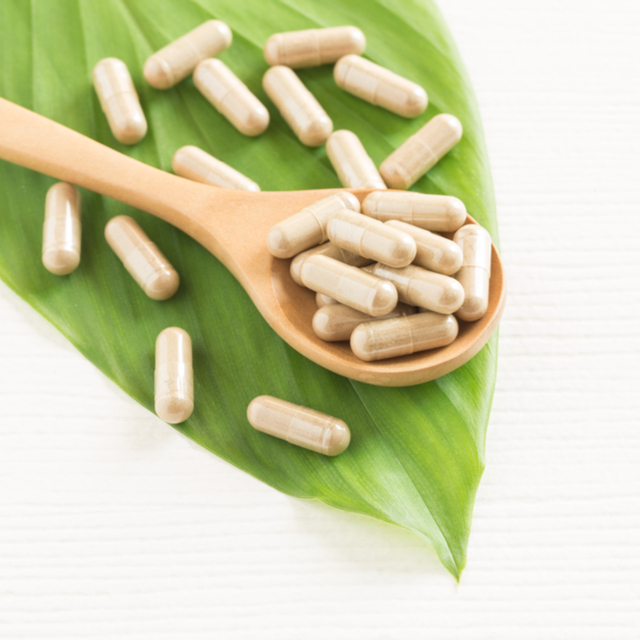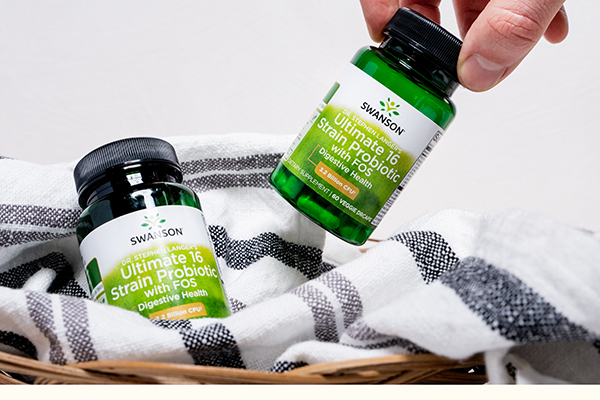Enjoying Better Digestive Health
Digestive health challenges are not only uncomfortable, they’re also quite common in the United States. In fact, roughly 70 million Americans are affected by gut health discomfort each year.1
Despite this alarming average, you don’t have to be a statistic. These super simple home remedies may help add some comfort and relief for overall digestive health so you can continue to enjoy your meals without paying for it later.
Warm Water with Lemon for Regularity
If you have difficulties staying regular, try drinking warm water with lemon to flush out your digestive system. This Ayurvedic approach to soothing stomach discomfort is easy to make and offers some flavonoids for immune health support as well. Just warm a cup of water either over the stove or in the microwave and stir in juice from half of a lemon.
Ginger for Calming Queasiness
Ginger root is a traditional favorite among Chinese and Ayurvedic herbalists for promoting healthy digestion. It’s also versatile in how it can be used. Perfect for after a meal, ginger root tea is a fantastic way to settle your stomach if dinner didn’t agree with you.2
If you’re feeling especially full and tea doesn’t sound appealing, you can also opt for ginger root supplement to get the most of this digestive tonic. Last but not least, you can add ginger to your favorite recipes to give your dish a kick of flavor and your digestive health some support.
Peppermint to Cool Down Abdominal Discomfort
This herb does a lot more than serve as a favorite flavor during the winter season. Peppermint may lend a refreshing hand in alleviating discomfort and bloat and comes in many forms.3
Peppermint tea is a relaxing and cozy method to reap the soothing benefits. However, if you’re not a fan of peppermint’s cooling flavor, you can opt for full spectrum peppermint leaf as well.
Digestive Enzymes for a Head Start
If you occasionally have trouble digesting or could be trying new foods, incorporating a digestive enzyme before eating your meal may help bring some ease with food breakdown and absorption. You can also add foods that naturally provide these enzymes into your diet. Raw honey for example, offers multiple digestive enzymes and can easily be added to tea or spread on toast for an easy-to-digest solution.4
Probiotics for Microbial Balance
Not all bacteria are the same: there are actually helpful bacteria that can be found in your digestive system. Sometimes, however, they can get overwhelmed by the not-so-helpful kind.
To build your gut with healthy probiotics, reach for fermented foods like kefir or drinks like kombucha. These probiotic-rich options help add more diversity to your microbiome and help improve overall gut health.5
Bone Broth for Gastrointestinal Integrity
Easy to include as a base for soups or stews and especially nutrient dense, bone broth makes for a delicious meal that can also boast some serious gut health benefits.
Bone broth is a good source of the amino acid glutamine. Studies have suggested that glutamine may help maintain intestinal barrier function to promote GI tract integrity.6,7
Along with these easy home remedies, it’s also important to get enough sleep and hydrate with water to maintain overall digestive health and wellness. It helps to avoid processed foods and reach for more plant-based foods in your diet as well. Gut health impacts your body’s overall wellness and comfort, so be sure to include healthy options that agree with your stomach.
If you’re looking for more ways to improve digestive health, see The 3 Best Herbs for Liver Health and Detox Support or Build a Healthier Gut with Probiotics. Sign up for Swanson Health emails to be the first to know about new articles and our best promotions.

About Amy Sunderman, MS, RD
Amy is a registered dietitian, nutritionist, and author with more than 20 years of experience in the supplement industry. Amy is passionate about dietary supplements and the health benefits they offer. She enjoys working to find novel nutritional ingredients with strong clinical research behind them to drive innovation and provide health-promoting products to consumers.
*These statements have not been evaluated by the Food and Drug Administration. These products are not intended to diagnose, treat, cure, or prevent any disease.
Sources
1. Opportunities and Challenges in Digestive Diseases Research. National Institute of Diabetes and Digestive and Kidney Diseases. Read source
2. Effects of Ginger. National Library of Medicine. Read source
3. Peppermint Oil. PubMed. Read source
4. 12 Foods That Contain Natural Digestive Enzymes. HealthLine. Read source
5. 5 Reasons You Should Add More Fermented Foods to Your Diet. Cleveland Clinic. Read source
6. Intestinal Permeability and Food Processing. Clinics. Read source
7. Glutamine and the Regulation of Intestinal Permeability. Current Opinon in Clinical Nutrition and Metabolic Care. Read source




